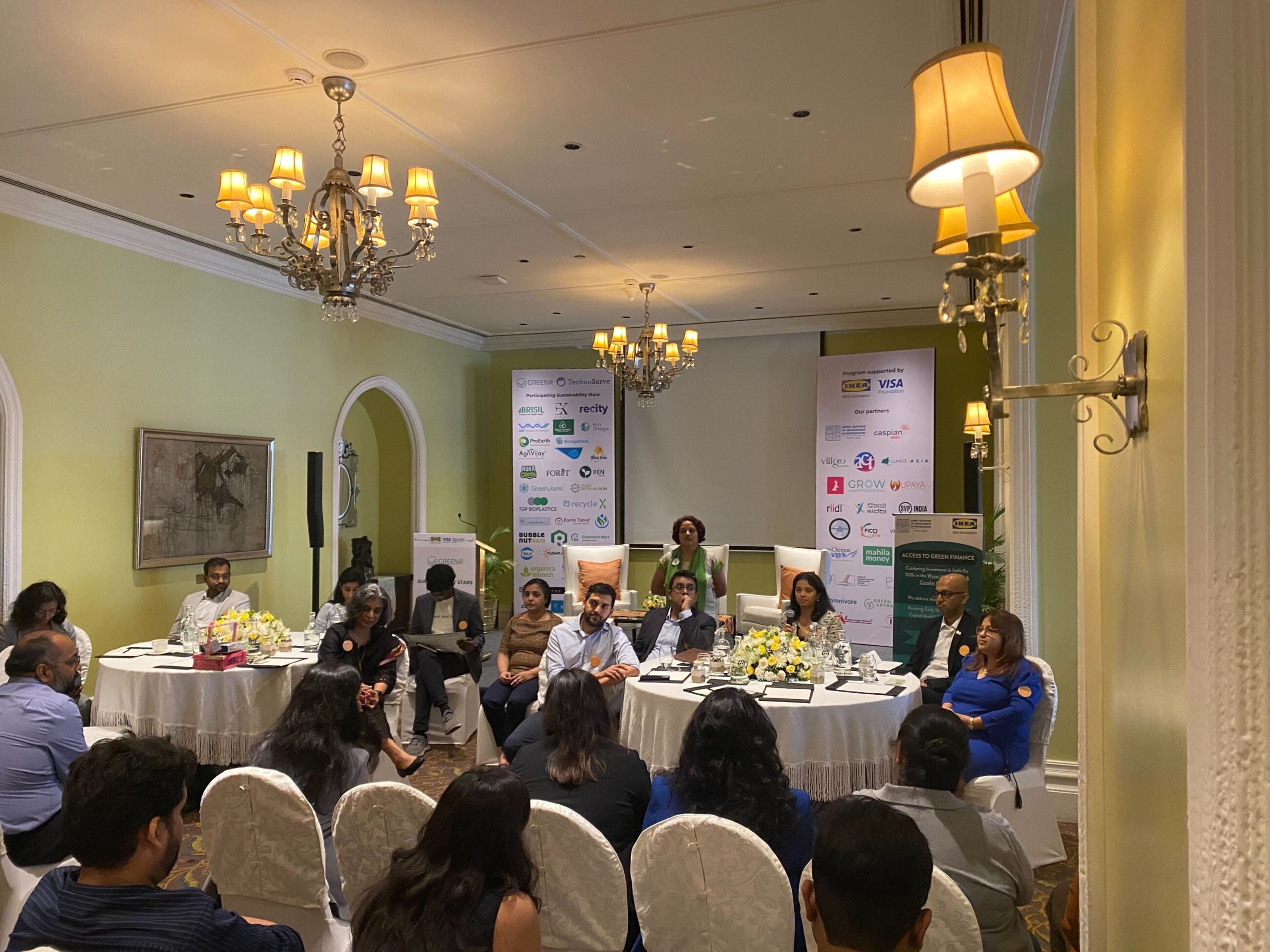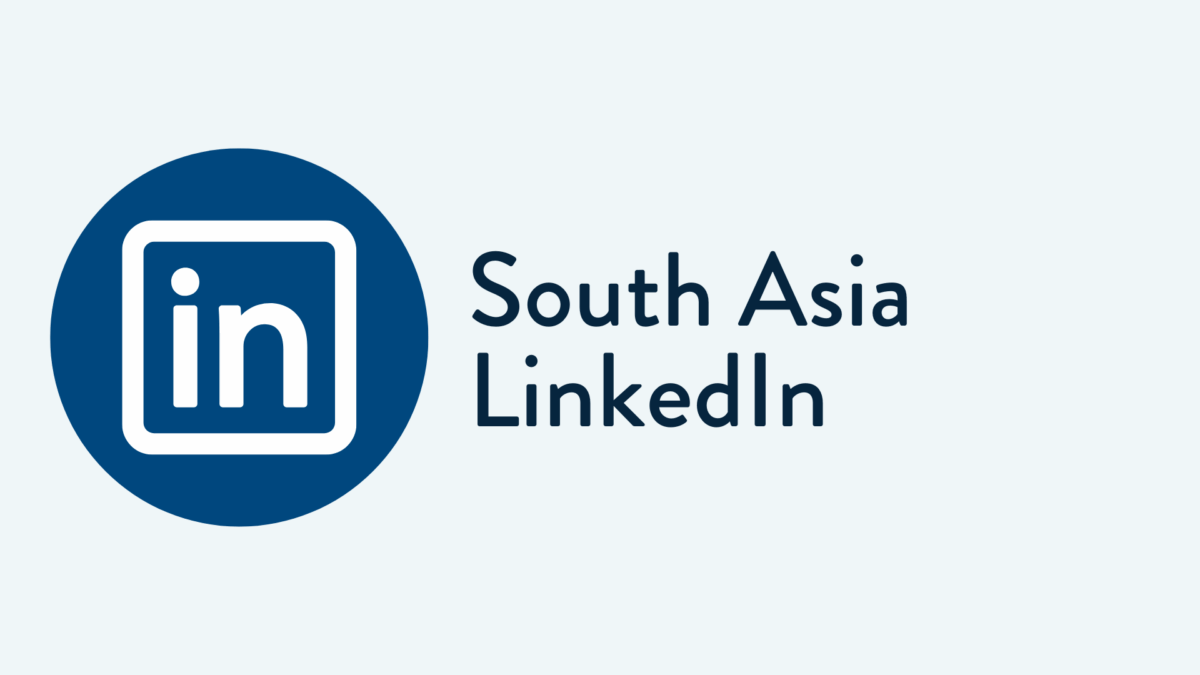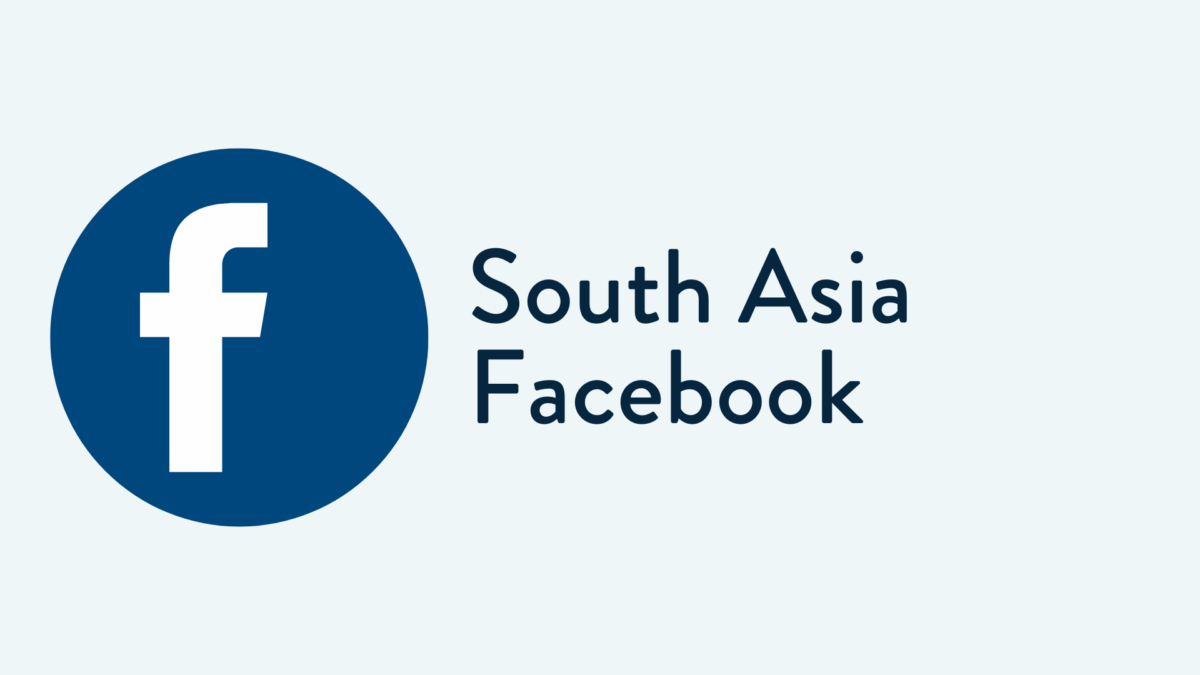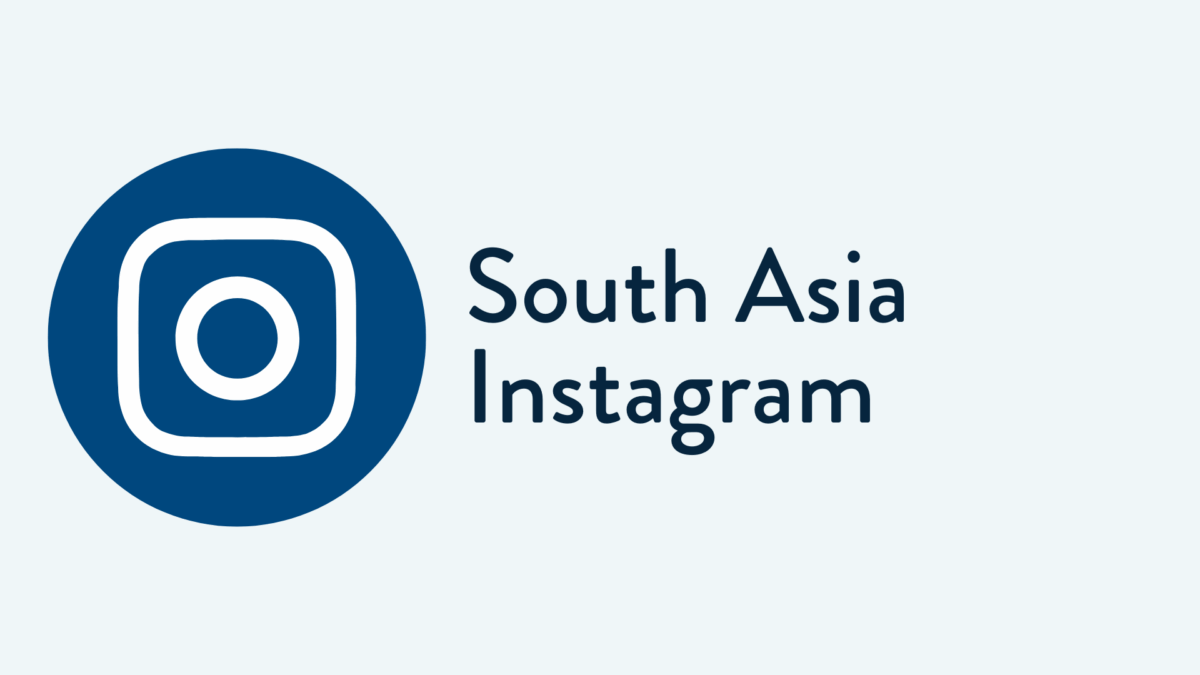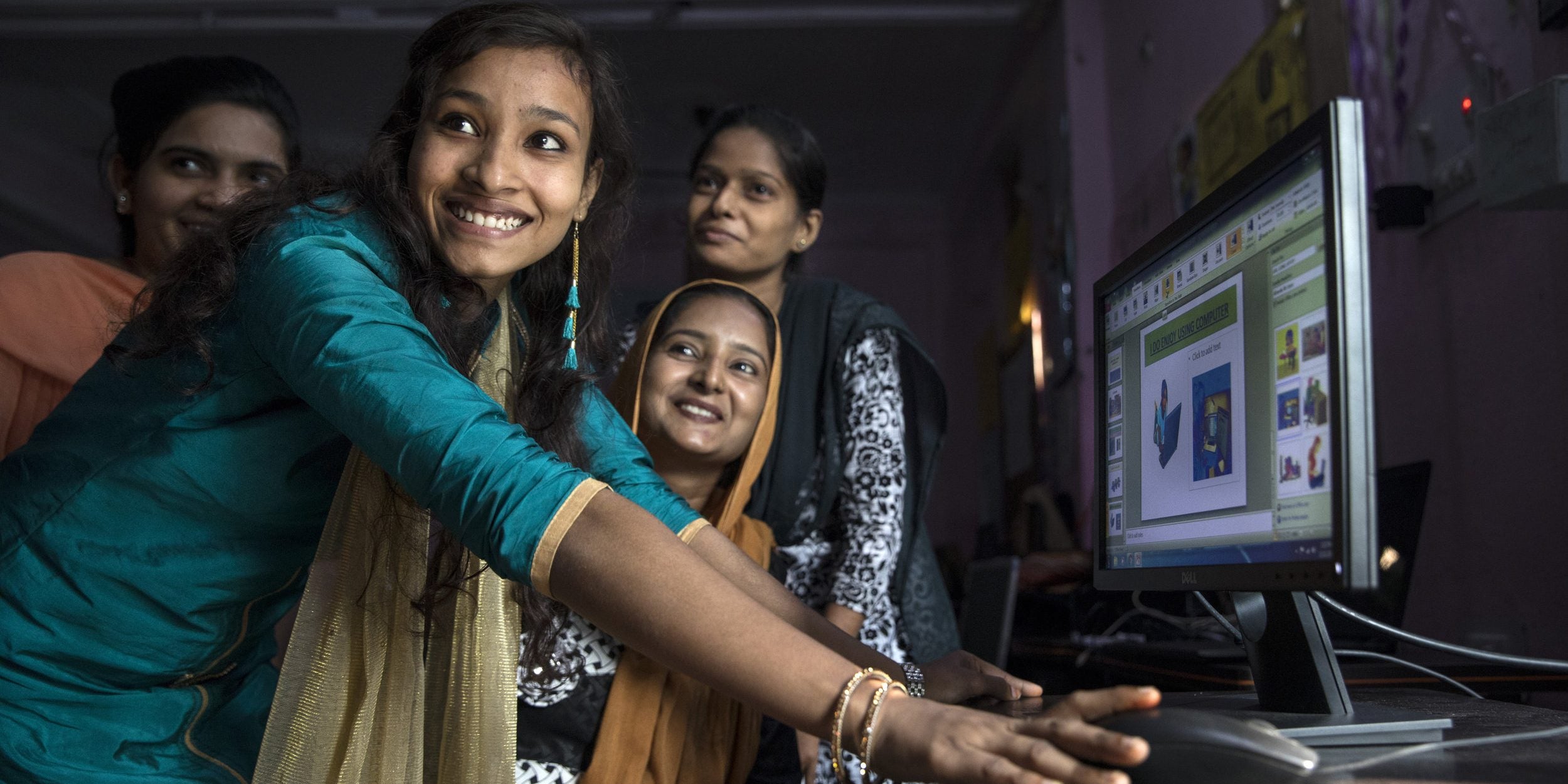
The South Asia chapter is headquartered in Chennai, India with staff in Bangalore and New Delhi, and serves members across South Asia.
It also aims to deepen ANDE’s role as the leading convener for organizations committed to supporting entrepreneurship in developing economies. Chapter activities aim to strengthen the local network, encourage collaboration, and co-develop programs and services for and with our members and the sector at large.
The Asia Climate and Environment Learning Lab aims to foster collaboration, spark discussions, build capacity, and drive the green transformation urgently needed.
Being part of a community of entrepreneur support organizations working to advance inclusivity in entrepreneurial spaces in Asia.
ANDE Asia chapters, in collaboration with Roots of Impact, is pleased to invite you to our Asia Small and Growing Business (SGB) Finance Learning Series where we explore innovative financing approaches for SGBs across Asia.
ANDE Asia chapters, in collaboration with Heifer International, launch the INGO Impact Investing Learning Series to convene a curated group of INGO practitioners to learn, share, and grow together.
This lab aims to act as a platform for intermediaries who are working to support entrepreneurs and innovators looking to tackle environment-related issues and climate action with the overarching goal of increasing on-ground entrepreneur support towards a more sustainable tomorrow. It will launch in the second half of 2021.
Each chapter's gender equality action lab will ideate and prototype solutions to systemic gender inequities in the SGB sector. They convene regularly and will conclude with a funding challenge to scale promising solutions.
This group seeks to provide a space for comprehensive discussion and knowledge sharing among intermediaries looking to better support SGBs in the area of access to finance. It helps address issues that challenge both ANDE members and the SGBs that they support as they seek to access debt and blended finance capital.
The ESEA and India chapters convene a cross-chapter Funder Learning Lab with the goal to promote greater donor efficiency by cultivating a relatively small group of representatives from donor agencies, private foundations, and family offices.
The conversation around scaling challenges for SGBs and intermediaries has so far been largely focused on external factors like raising capital, while internal factors such as talent and team development, organizational culture, and leadership have been neglected. The ANDE India Talent Learning Lab aims to address this gap.
This group acts as a platform for intermediaries working to support women entrepreneurs in various capacities in India with the overarching goal of increasing gender equity and equality in India.
ANDE Action Labs convene members to ideate and prototype solutions to systemic challenges in the SGB sector. This group is ANDE’s inaugural laboratory for tackling constraints specific to SGBs and the intermediaries that support them in environmental industries.
This learning lab will seek to provide a space for comprehensive discussion, knowledge sharing and knowledge creation. We aim for it to act as a platform for intermediaries who are working to support entrepreneurs and innovators looking to create decent, quality jobs. We will focus on understanding what the different aspects of a ‘quality job’ are, the role that intermediaries play in supporting SGBs to create these and what are metrics that could be used to measure progress around decent job creation.
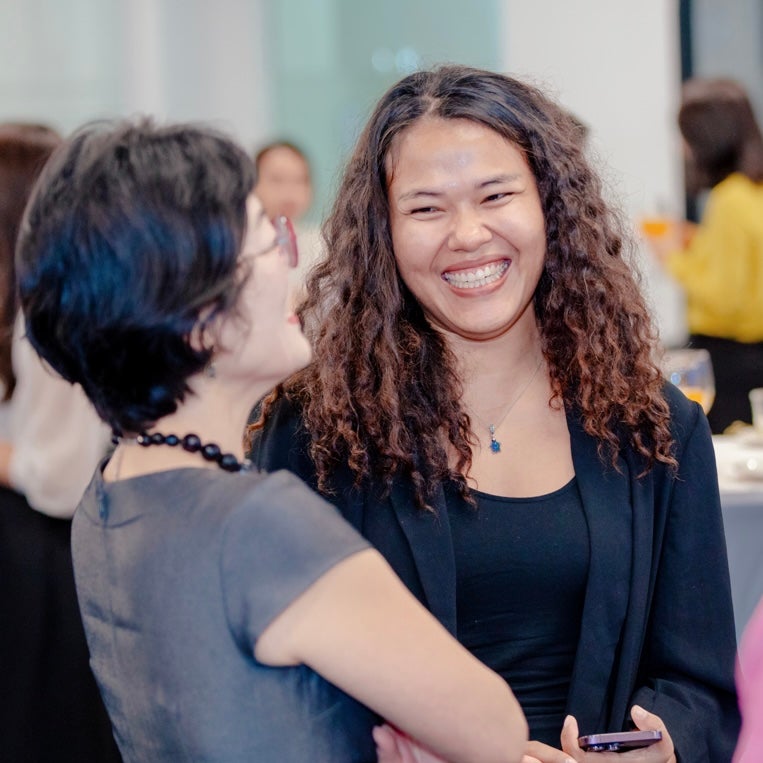
The concept of gender-lens acceleration has taken hold in recent years, with various toolkits outlining how to be more gender inclusive at every step of the acceleration process, from selection to programming and alumni support. However, it is not well understood how effective these strategies have been in producing more equitable outcomes for women. This report aims to fill that information gap by synthesizing the research on accelerating women-led ventures, exploring case studies of two accelerator programs in Asia that have outsized impacts for such ventures, and spotlighting other programs with unique program models or perspectives.
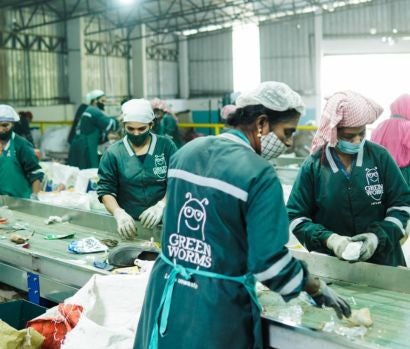
This landscape guide is intended to outline India’s current context in recycling and circularity, with a focus on the investment potential, opportunities and business models in the ten most significant waste streams in India. It provides a framework for how investment potential in a waste stream can be determined, which covers five areas that define that potential: market size and growth; investable start-up pipeline; product readiness; policy support; financing needs and gaps. The guide also includes a historical outline of investments and funding in each waste stream and outlines the roles and participation of various types of equity funders, along with the potential and participation of non-dilutive funding options.
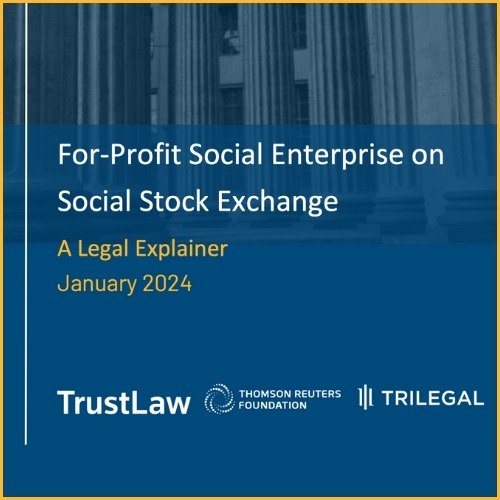
India needs a significant capital injection to achieve the Sustainable Development Goal (SDG) target by 2030 and deal with climate change. Impact investing, catalysing philanthropic and commercial capital, offers promise in addressing critical social challenges. Initiatives like the Social Stock Exchange (SSE) and regulatory amendments aim to increase and broaden the pooled funds available to social enterprises and help them scale. Given this context, ANDE South Asia produced this explainer in collaboration with TrustLaw to provide focused guidance on how local and foreign impact investors can leverage the SSE to make investments in social enterprises in India.
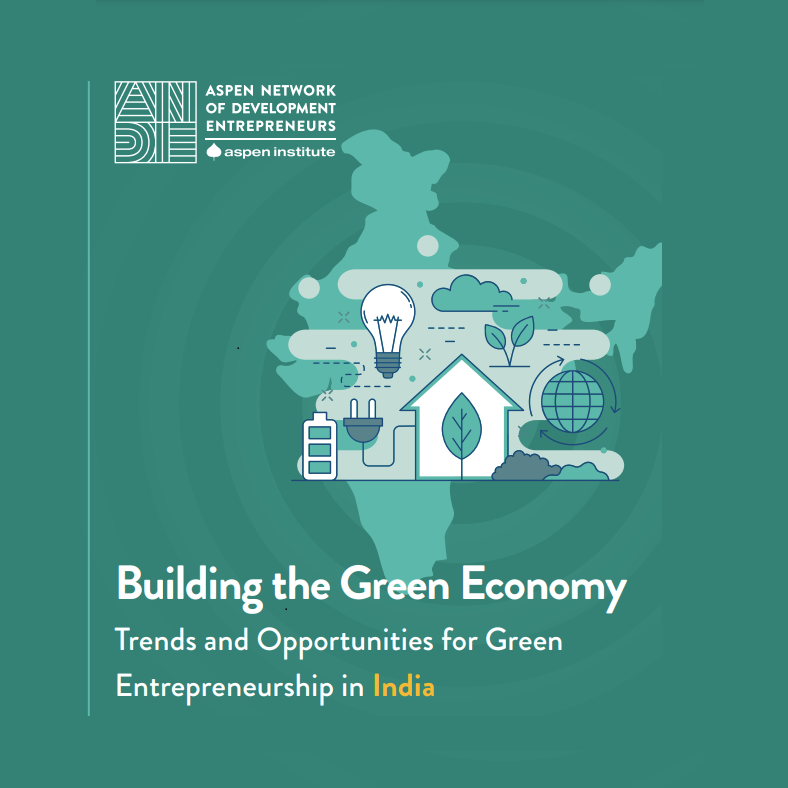
Climate change and environmental degradation place significant stress on India’s biodiversity, food supply, water and energy security, and human health. The private sector will play a critical role in achieving these objectives, particularly growth-oriented entrepreneurship that can bring new ideas into practice, introduce technical innovations, and create demand for new environmentally friendly goods and services. According to the International Labour Organization (ILO), green entrepreneurs address climate change and/or create a positive environmental value either through the process of delivering products/services (e.g., utilizing clean technologies) or by working in a green sector (e.g., waste management). Such entrepreneurs tackle climate change from multiple angles.
This report establishes a baseline understanding of the state of green entrepreneurship in India by assessing existing business models, the available financial and technical support for entrepreneurs, and key sectoral issues regarding the policy landscape and market opportunity. The purpose of the study is to inform decision-makers, such as policymakers, donors, investors, and business development service providers, of the primary trends, opportunities, and challenges in the green entrepreneurial ecosystem in India.
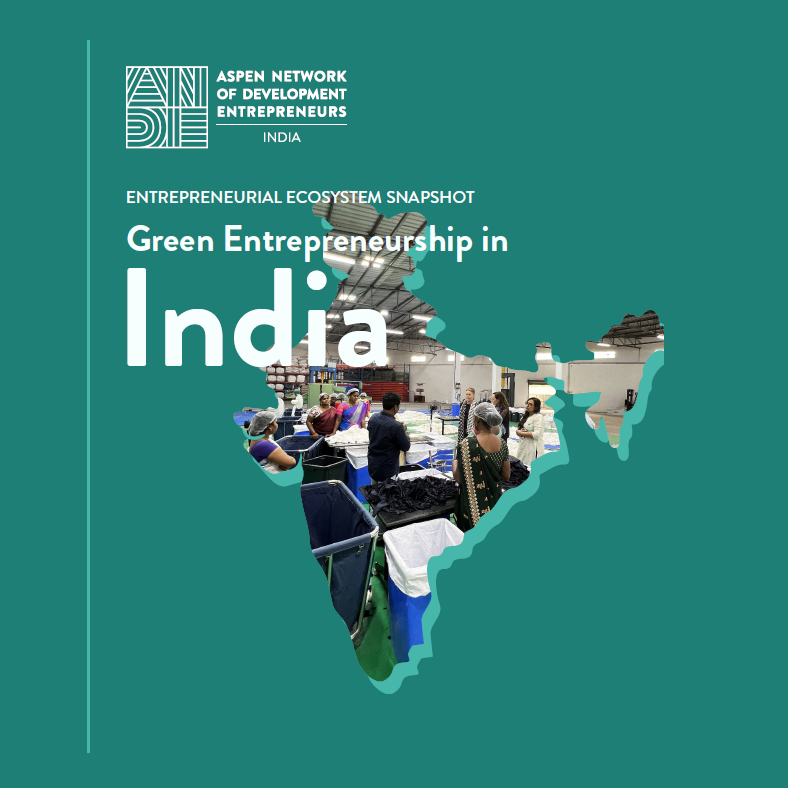
The damaging effects of climate change in India are all-encompassing, threatening agriculture and food supplies, energy security, water security, and public health. To ameliorate climate and environmental challenges, India has committed to a green economic transition through various government policies and initiatives. India has the the world’s third largest entrepreneurial ecosystem after the United States and China, and an increasing number of sustainability-oriented startups, investors, incubators, and accelerators in India is shaping a vibrant green ecosystem. This report examines the ecosystem of support for green entrepreneurs in India. Using data collected via surveys and desk research, this snapshot report uncovers important challenges and opportunities for green entrepreneurship to inform stakeholders of how to better support the development of India’s green economy.
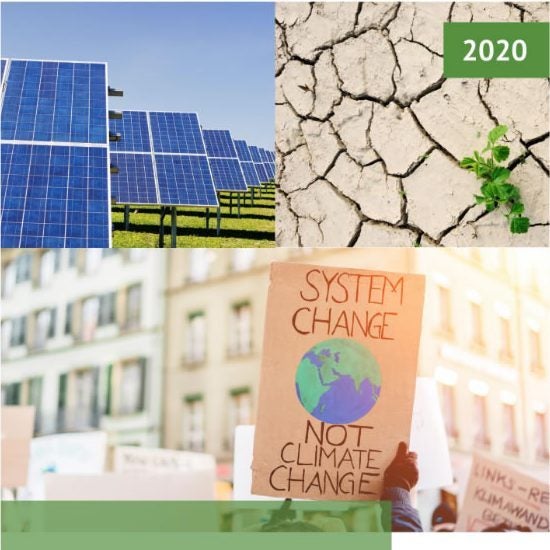
"This issue brief is a part of a series formulated by the Aspen Network of Development Entrepreneurs (ANDE) India chapter. It aims to contextualise the findings and strategy regarding our key urgent issues and the small and growing business (SGB) sector outlined in ANDE’s globally focussed issue brief, Climate and Environmental Action in the SGB Sector, at a regional level. This brief is a starting point for conversations on environmental action and is meant to help shape ANDE India’s strategy for the region. This is not meant to serve as an exhaustive collection of the research/literature on the topic, and proxy data points have been used to best represent the state of the SGB sector."
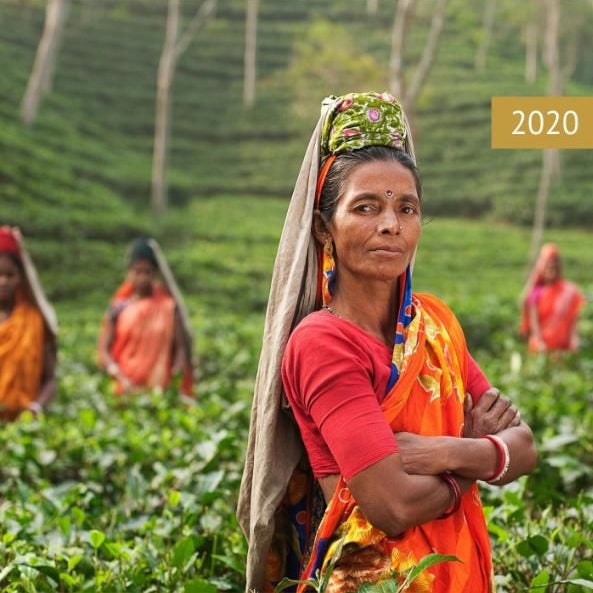
"This issue brief is a part of the series formulated by Aspen Network of Development Entrepreneurs’ (ANDE) India chapter. It aims to contextualize the findings and strategy outlined in ANDE’s global gender issue brief, for India, and to create a knowledge base connecting our urgent issues and the Small and Growing Business (SGB) sector at a regional level. This brief is a starting point for conversations on gender equality and is meant to help shape ANDE India’s strategy for the region."
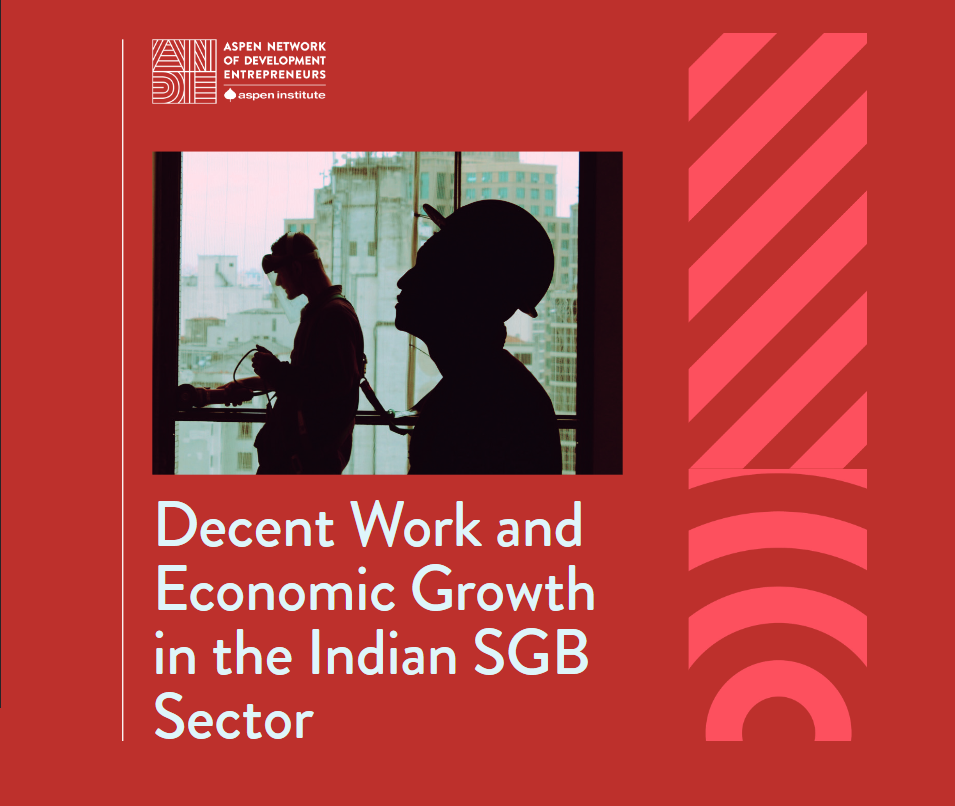
With over 10 years of active involvement and experience, ANDE is committed to further deepening our role in the entrepreneurship and development ecosystem. Our updated global strategy, which informs ANDE’s global and regional work for the coming years, aligns with the United Nations’ Sustainable Development Goals (SDGs), specifically focusing efforts on three urgent issues: decent work and economic growth, gender equality, and climate and environmental action. This brief focuses on decent work and economic growth, for India. It has been developed in partnership with ANDE Members Upaya Social Ventures and Global Alliance for Mass Entrepreneurship (GAME). The brief highlights the current status quo of how small & growing businesses are contributing to creation of decent jobs and outlines strategies for collaborative action to strengthen the ecosystem.
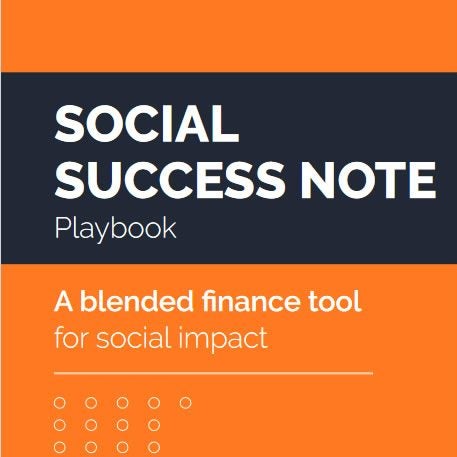
"As an output of the ANDE SGB Finance Learning Lab, ANDE India and Asha Impact have collaborated, with the support of SAP and platform partner UNDP SDG Finance Facility, to put together this playbook on Social Success Notes. SSNs are innovative financing mechanisms that aim to leverage commercial capital for social good. Aiming to be a functional tool for the entrepreneurial ecosystem, this playbook addresses the why, what and how of SSNs, along with a few case studies, challenges and opportunities revolving around these nascent financing tools. Especially in times of crisis, instruments such as SSNs have the potential to improve the efficacy of philanthropy and government spending. The playbook has been developed for impact investors, social entrepreneurs, outcome funders and other players in the impact ecosystem."

Gain expert perspectives on climate with Jennifer Oomen, Senior Director, Technical Excellence of Terwilliger Center for Innovation in Shelter, Habitat for Humanity.
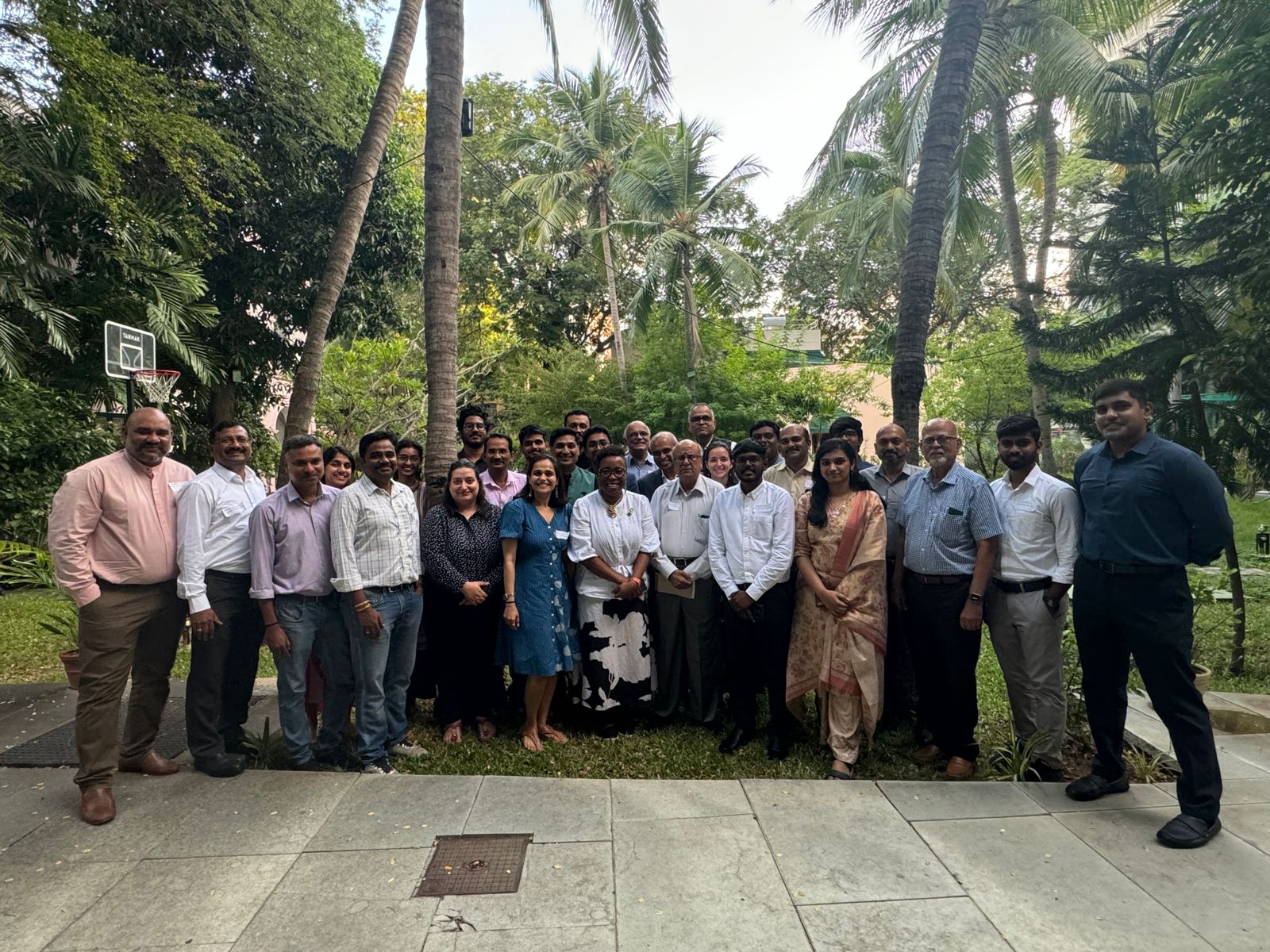
Explore climate insights and unpack climate challenges with Global Business Inroads (GBI).
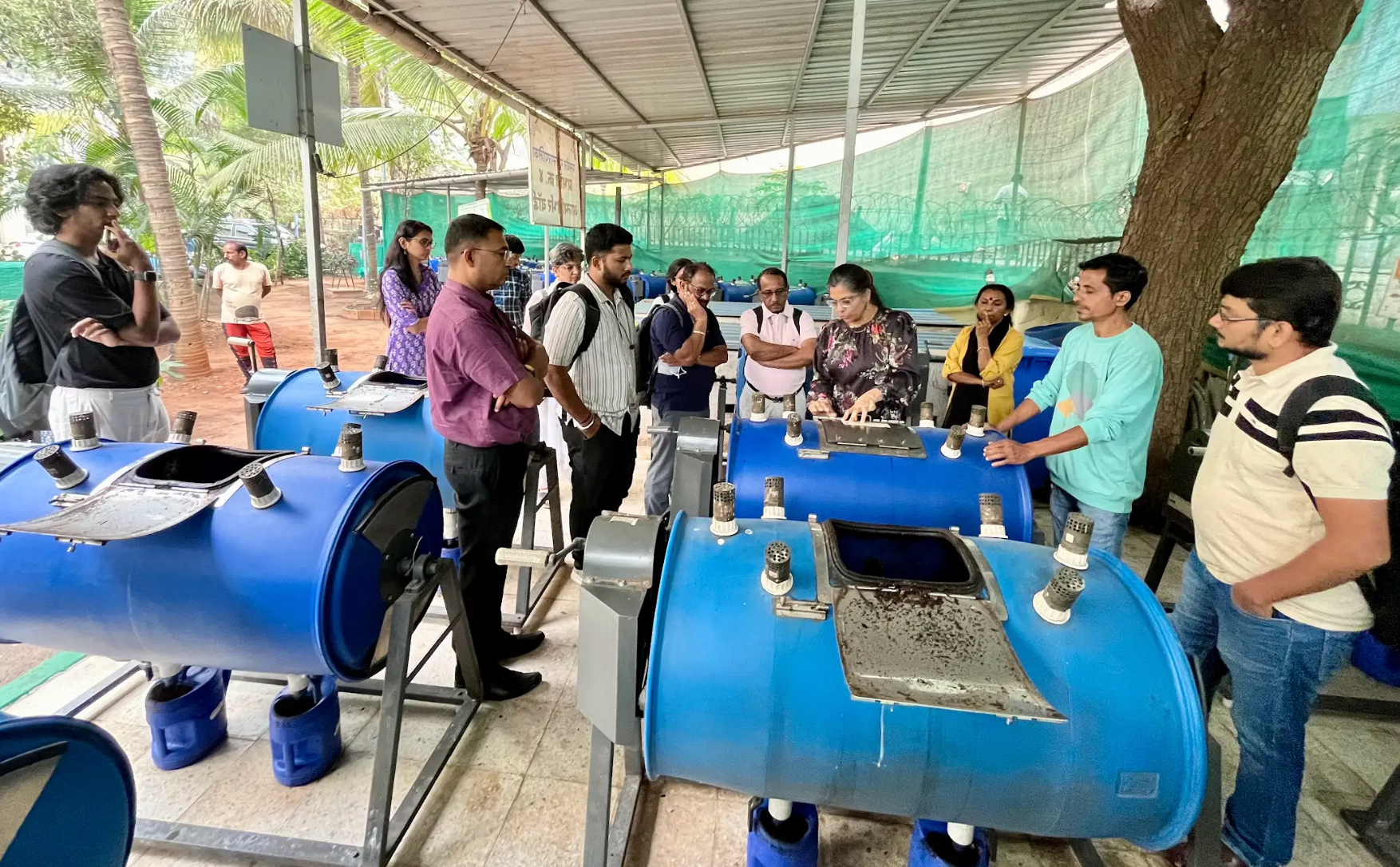
Dive deep into Climate Conversations with our Co-Chair, Ajay Menon.

ANDE South Asia publishes the Member Showcase – a document that goes out during the year highlighting the work being done by a few selected members on a regular basis. This showcase is an attempt towards to not only draw attention to the current focus and initiatives that members in the region are working on but also help drive deliberate purposeful collaboration with specific asks and offers for working together.

Level Up Legally is an initiative by ANDE in partnership with GameChanger Law Advisors, aimed at equipping entrepreneur support organizations and small and growing businesses (SGBs) in India with a stronger understanding of the legal landscape. Through practical guides, legal clinics, and tailored resources, this partnership is designed to help SGBs navigate complex regulatory frameworks, make informed decisions, and build more resilient enterprises.
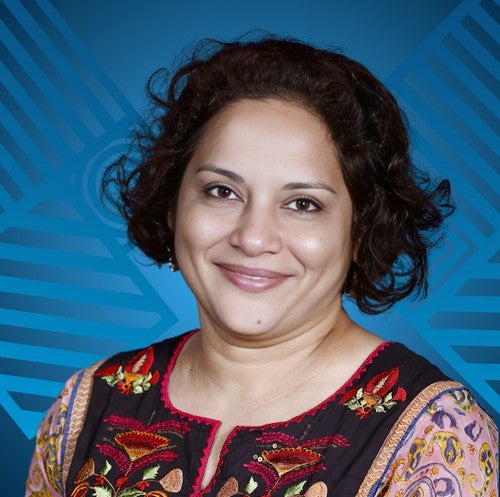







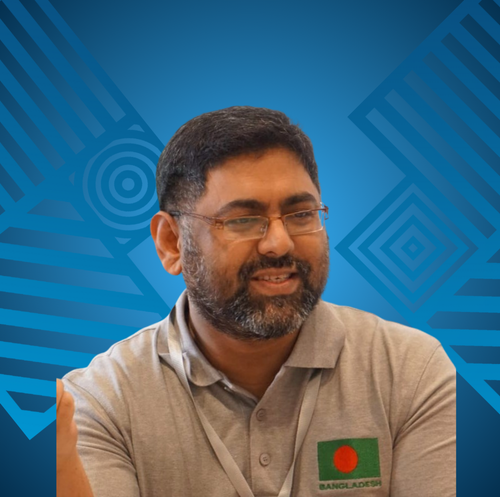
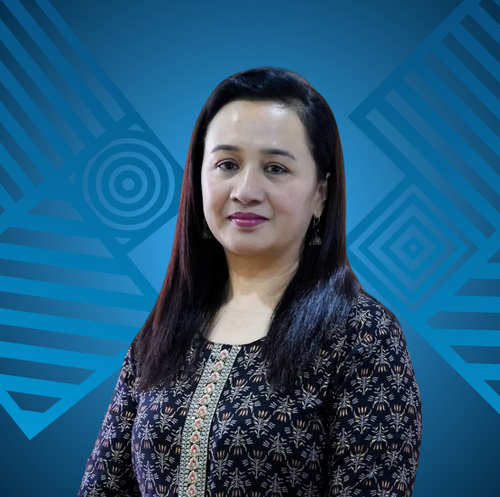


Uncover the transformative work happening across Asia—collaborations, innovations, and solutions making a lasting impact on sustainability, equity, and progress.

